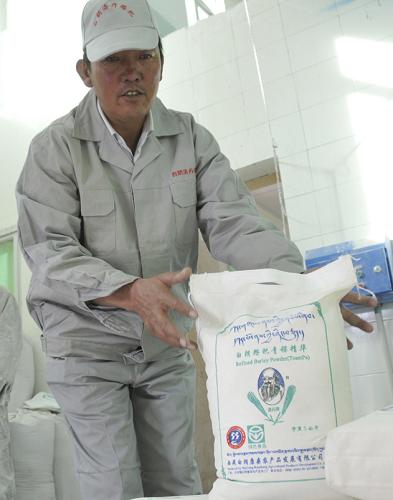The barley king
- By Chen Xia
 0 Comment(s)
0 Comment(s) Print
Print E-mail
China.org.nc, July 8, 2011
E-mail
China.org.nc, July 8, 2011
 |
|
Norbu Tenzin [File photo] |
In southwestern Tibet, near the Nepal-Bhutan-India border, lies a county in Xigaze Prefecture known for its production of high-quality highland barley. Now, with modern agricultural techniques and a large flour factory, Panam County has become a flourishing community in the far corner of China.
Norbu Tenzin's barley flour factory has produced 3.5 million kilograms of barley flour this year, bringing in 17 million yuan in revenues. He opened it in 1999 with 180,000 yuan of his own money, which he had saved from a transpiration business. Norbu Tenzin credits the Communist Party for his success: it was with new policies in 1995 that he was able to get a bank loan to start his business. And business has grown every year.
Now, the 49-year-old earns a net income of 1.8 million yuan a year, a far cry from the 4,500 yuan salary he made before his transpiration business. He built himself a two-story, 800-square-meter house a few months ago.
"In old Tibet, only the lords could live in such a big place," Norbu Tenzin said. "I'm the son of serfs. I must attribute my happy life to the Communist Party."
Norbu Tenzin likes to share his wealth and tries to boost his hometown's local economy. More than 70 percent of the workers in his factory are from his village. He pays them at least 2,000 yuan every month. He also buys green barley from local farmers, including a big order last year of 1.5 million kilograms that boosted every farmer's income by 1,300 yuan.
"Although traditional farming methods are still seen in some places in Tibet, we are changing to modern agriculture," Norbu Tenzin said. "We will make more money through cooperation."





